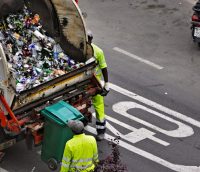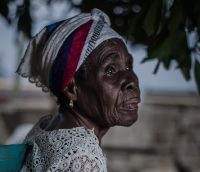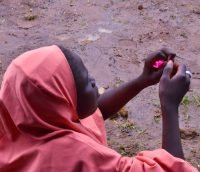
Recently, I had the distinct pleasure of meeting Ramatu Ada Ochekliye, founder of Shades of Us, an organization dedicated to improving the lives of all Africans. I hope you enjoy this interview with Ramatu as much as I did.
Good morning, Ramatu. Thank you for speaking with us today. Can you tell us about who you are and what you do?
Hello Hannah. It is a pleasure to meet you. I am a content creator who has worked in radio and television and is currently using digital media strategies to tell stories about Africa, Africans, and people of African descent.
I am the founder of Shades of Us Storytelling Initiative for African People (Shades of Us), a non-profit organization where I use a suite of written, audio, visual, and audiovisual content to promote global goals.
My work especially focuses on the issues that affect women, children, people with disabilities, and other marginalized members of society.
Could you share any significant milestone in your childhood that shaped who you are today?
One of the first things that was pivotal to who I am today was watching Oprah. I think it is one of the first memories that I have of watching Oprah on TV when she described the story of how she had been sexually abused.
As a child, I didn’t understand the concept of sexual abuse, but the way she told the story, the inflections of her voice, the way she enunciated her words, and the way she expressed them… the pain from it stayed with me for such a long time, and it made me feel this anger towards sexual abuse. I was pretty young, but it made me start to seek out information about sexual abuse. Physical and sexual abuse was represented in the people close to me. I wanted to be like Oprah, to be able to tell stories in a way that really communicated how traumatic an experience can be, but how it can also be life-changing.
This was one of the first things that sparked my desire to tell stories about the issues that affect us as Africans and Nigerians particularly, and to see how we can use storytelling to spark that desire in people and change the things that are happening in our communities so that we have a better structure for ourselves.
Can you share with us the story behind the inception of the initiative, Shades of Us?
Oprah was what sparked storytelling in me, and sometime in 2000, there was a crisis, a religious crisis in Kaduna State. I was still in primary school, and we had this teacher, Mrs. Williams, who had to house a lot of us in her house because of the crisis. People were being killed, so she kept all of us together.
Growing up, I was born into a mixed family, and I didn’t see a problem with religion. You were who you were, and that was what it was. But this was a crisis that reminded me that there were differences between people because of what they believed in. And that was the first time I sort of had that thing about the difference between people. So, while we were in her house waiting for our parents to come, she gathered us together and told us,
“You know what, as much as we have our differences (she was a Christian at that time, and I was a Muslim) the only difference between us is the fact that we were and will always be human first.”
I remember clearly that was the first time I heard someone say we were human first. That shaped my thinking because, from that point, I always thought of our humanity first. We are human first: our differences should not matter. I wanted to communicate that when I started doing stories. I started storytelling really early. I think I was eight years old, and we came third in the interstate stage play that I had developed. So I had that, and I had Oprah spark storytelling in me. Mrs. Williams layered on and reminded me that we were human first.
I went for a peer education initiative in Junior Secondary School Three (JSS3) and they talked to us about sex and reproductive health. It is worthy of note that we are a conservative nation. Yet, for some reason, when they asked who would represent our class, everyone in our class said ‘Ramatu’.
For some reason, I believe they saw me as confident, and one who could talk in public. I didn’t have taboo topics. So, I went for that training and learned about our reproductive health, and for the first time, how we can move towards gender equality. It was then couched under the Millennium Development Goals (MDGs).
So, if I want to talk about the things that built that desire for Shades of Us, it started first with Oprah using storytelling. Then, Mrs. Williams reminded us that we were human first, and then the initiative that trained us on gender equality. From that point on, I was actively fighting against gender inequality, doing everything I could to speak up about it.
Still, we didn’t get our first structure until 2014 when a colleague of mine said, “You know, you have been writing a lot of things about gender equality. You are writing things about how we can make the world a better place on Facebook. Why don’t you think about writing on a blog and reaching global audiences?” And so when I sat down, I thought, “Okay, this is something I can do.” I learned about how blogs such as Blogger and WordPress function. And I thought, what would be the name? I didn’t want to go with my name, Ramatu Ada Ochekliye. So I said, maybe I should start by doing something all-encompassing that would bring us together.
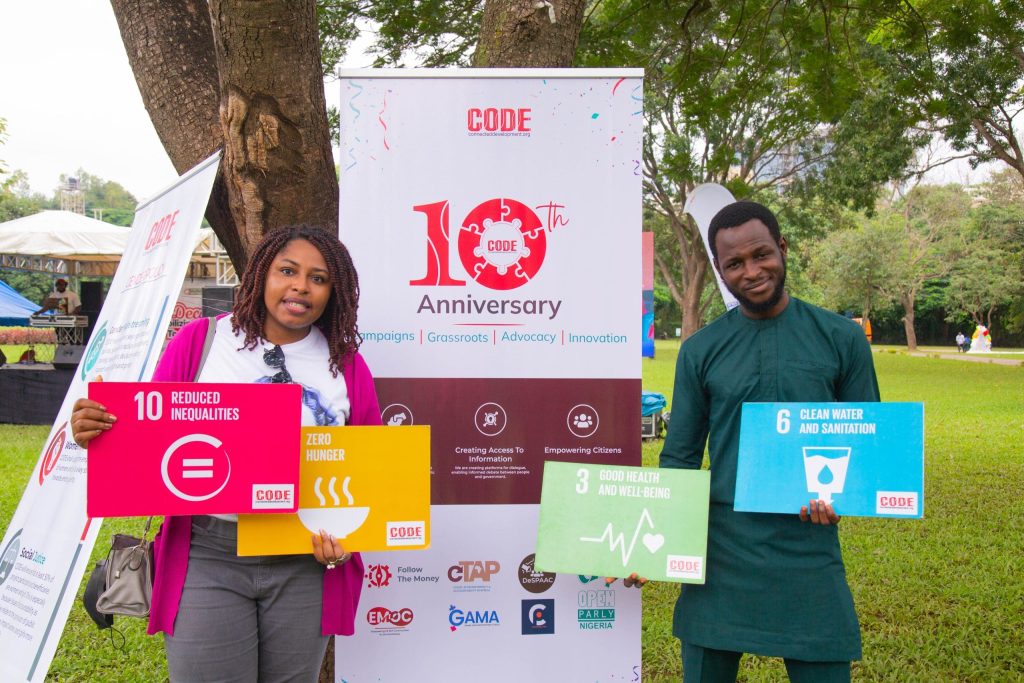
And so I thought of ‘Shades of Brown’, with brown denoting our skin color as Africans. I ran Shades of Brown for about two years before I realized that ‘brown’ wasn’t communicating what I really wanted it to communicate. People thought it was a lifestyle blog rather than someone talking about inequality. So I thought about it again. And we came up with ‘Shades of Us’. You know, all shades of us are important, and the moment that name came to me, it stuck. And so, in 2016, we actually changed from Shades of Brown to Shades of Us. Since then, we have maintained our name. Unfortunately, in trying to register Shades of Us, there were already organizations that bore Shades of Us in Nigeria, and so we had to add the other things that make our long name, which is Shades of Us Storytelling Initiative for African People, as the name captures the essence of what we want to do. But for short, we are known as Shades of Us.
Since April 2014, we have been using Shades of Us, using stories to tell the issues that are within our society, with the hopes that we will change things for the better for our people.
How have your backgrounds or personal experiences influenced the initiative’s mission and focus? I know you’ve answered a little bit of this already, but is there anything else you’d like to add?
Okay, seeing abuse in my family, my immediate family, was a trigger. For me, I understood that I didn’t want a situation where women were treated less than because we were women. Seeing abuse in my extended family told me that it was a bigger problem. It wasn’t just my family. And then seeing abuse in the bigger society where I lived when I grew up really annoyed me.
“But beyond the annoyance I wanted to fight, I realized I was in a constant state of anger. I was angry at people who abused women and treated women poorly.”
Ramatu Ada Ochekliye
I was angry at people who even thought that because I was a woman, I didn’t deserve certain things. I came first almost all of the time in my primary and junior secondary school, and someone who was the assistant head boy with me in primary school told me he was so angry that I dared to come before him and come first in class. And that stayed with me. I kept thinking, what is the thing that they say women cannot do? I went ahead and did those things.
So when in secondary school, they said women did not do business studies, that women did home economics. Most women did Home Economics because we had to choose between them. And so I went to do business studies. When I got to senior secondary school, they said, ‘Oh, most women do not do further mathematics or technical drawing’, I said, ‘No, I’m not doing that.’ I did further mathematics, and I did technical drawing. When they said, ‘Oh, women couldn’t play football, couldn’t play basketball’, I insisted on doing all of the things they said women couldn’t do. I wasn’t very great at a lot of them, especially football. I wasn’t very great at basketball. I wasn’t very great, but the idea for me was that I wanted to do what people said women could not do. If I were the representation of women in those things that women were supposedly unable to do, then I would have done my bit for the world, and so I kept doing that, and that really has shaped all of our work.
For Shades Of Us, the stories we tell remind people that women can and do belong in all spaces. People who are gender non-conforming, people with disability, and children too, because many people do not understand that children also deserve respect and that they have rights. And so it expanded from pushing ideas about gender equality to pushing ideas about equality for all, including people who are gender non-conforming, people who do not behave the same way that others say they should, and people who have different sexual orientations. It has been hard because the natural human instinct is to conform and fit into society, and so when you do decide to stick out of that thing that is expected, sometimes you make enemies, and people hate you.
I figured out who I was early on. And because I figured out who I was, it didn’t matter if people said, ‘Oh, look at you. You’re such a tomboy.’ I would be like, ‘Oh, sure, I am a tomboy because I play basketball? Fine.’
‘You speak so loud, and women should speak in soft voices.’ And I’m like, ‘Well, I wasn’t born with all of these decibels to be quiet.’
And so, it was a lonely life to be this person who stuck out. But it has been fulfilling for me because the best thing for me was finding out who I was very early before society had time to mold me into something else. And that, for me, remains the reason why, with Shades of Us, we are telling people you have rights as a woman, you can do whatever you choose to do as a child, you need to be respected as someone with a disability. You need to be included as someone who is gender non-conforming. You are valid. And so that Is the essence of everything that we have been doing with Shades of Us and with my life as a whole. I tell people that Shades of Us is my life’s work. And yes, um, I am proud to continue to speak out from the crowd and do the thing that improves us as a people.
In what ways does Shades of Us align with SDG Goal Eight, and how can progress toward achievement be effectively monitored?
Note: The United Nations Development Programme’s (UNDP) Sustainable Development Goal (SDG) 8 is Decent Work and Economic Growth. The goal is to promote economic growth that is sustainable, inclusive, and sustained, as well as full and productive employment and decent work for everyone.
Okay. One thing I learned when I got my political awareness was that if we have work, and work didn’t have to be a specific kind of thing, that we had something that led to our productivity, that we could not only improve our lives but also improve the lives of our families, of our communities, of our nation as a whole. And it was very important for me as a person to work. I tell people I have been working all of my life, and I laugh about it, but in the real sense of the word, I have been working since 2007, when I was a teenager. I find reward in work.
One of the first stories I wrote was about how we should all aspire to work and improve our nation. A lot of people came into that blog post and said,
“You know what? We want to work, but our economy does not allow us to.”
Ramatu Ada Ochekliye
There are no opportunities for young people because, for some reason, education has been deliberately destroyed in our public school system. And a lot of people could not get jobs, and people who didn’t have technical skills struggled. People who had technical skills but didn’t have a formal education struggled. For me, it was important when we were choosing the global goals that were most fitting for Shades of Us that one of them had to be decent work and economic development.
There is a growing trend in Nigeria where work is looked down on because some people who have made criminal choices have been able to get money quickly and flaunt that money. And so, we have a lot of people who think there is no need to work. If we can do criminal things and we can live large, it will be fine.
For Shades of Us, we needed to emphasize that there was honor, there was respect in work, and for us, it is very important not to toe the path of criminality because it doesn’t just affect the person who is a criminal or the person who a crime is done against: it affects all of us as a collective. We do blog posts, podcasts, and even videos about the need for us to work and to find some joy in work.
But as we see the degradation in our society with people worshiping money, we will continue to promote the idea that we can do and achieve and be the people that we want to be if we work legally and do the right things that we need. Without formal education, people do not see the opportunities that they have.
We have a Shades of Us education project to help people from underserved communities get formal education. I believe that the major reason my life has turned out this way is because I had a formal education. I believe that without formal education, my life would be much different from what it is today. Because we have a nation that is deteriorating, we want to educate people from junior secondary school up until the university so that they know that education is also a pathway to wealth, a pathway to a better life, and they can pursue that.
We are tied to SDG 8. It is a huge part of the things that we do. But we do realize that it cannot be standalone. It is something that is tied to the other 11 sustainable development goals that we work on: no poverty, zero Hunger, good health and well-being, quality education, gender equality, clean water and sanitation, decent work, reducing inequalities, climate action, peace, justice, and strong institutions, and then partnership for the goals. If we can connect all of these, we will be able to contribute better to society.
Earlier, I mentioned how it was deliberate that people destroyed our education system. I feel really sad about it because in the 50s, the 60s, and 70s, our education system was so good. The public school system was amazing. Everyone talked about it and the way they spoke, you could tell these people were properly educated.
After a while, all of the funding for these institutions dropped. Issues came up, and I think it was deliberate because when people are not educated, you can feed them a line of bull crap, pardon my language, and they would accept it and vote in people who are terrible for them, rather than people who should be accountable to them. So I am passionate about education and also our ability to work.
What are the main goals and objectives of your initiative, and how do you measure its impact?
Our major goal is to use storytelling to address the social and economic issues that affect Africa, Africans, and people of African descent. We are specific about people who look like us because there has been a history of things that happened to us: from slavery, which we weren’t here to see, to colonialism, to the criminality and corruption of our government, which I am here to see.
There have been a lot of things that have happened to us that have really limited who we are and who we can be as a people. All of our stories are to address some of these social issues. If your social and economic problems are better, the social determinants of health and well-being are better, you can focus on some of the other things that are being done to you: which is why we focus on socio-economic issues. We talk about health. We talk about hunger because we believe that if people are okay on all these fronts, we can question our government and say, ‘Oh, you are not doing the right thing’. Why should our elected officials take a third, fourth, or fifth of our national budget? We can question that.
But if I am too hungry and sick, if I am worried about marauding bandits and terrorists, I won’t have time to ask the government about anything that is happening. So we talk about these issues, and we use digital media for the most part.
It was only two or three years ago that we started doing community-related activities because we realized that we could reach people on digital media, but our community also needs to get that message that we have. For our digital approaches, we measure our impact through certain indices, ah, social media analytics or digital media analytics, to see how many people we reached and how many people engage with our posts. That’s how we measure our impact across our digital media spaces. We also go a step further by seeing how many people ask for more information or are saying,
“You know what? I’m willing to change my life because of this.”
Ramatu Ada Ochekliye
These are some of the indicators that we look at. And then for our community-led activities, we see how many people we reached with our information, especially with our mobile cinema approach. We see how many people we reached and how many people have a change in perspective from it.
When we go for community activities, we have a pretest before we start. We do our film screenings, have our discussions, and have other partners talk about how we can improve lives on whatever topic we are discussing. Then, we take a post-test to see if there has been a change in perception about the idea we wanted to communicate. And when we see that there is that change, we say,
“Okay, this is good, and this is done.”
Ramatu Ada Ochekliye
So far, we are still growing, looking for ways to add the social determinants of health, and trying to find ways to measure impact outside of digital media analytics and the qualitative analysis that comes from your pretest and post-test. As we get bigger, we would want to provide direction to services, and that would be something we would track.
Say, for example, we do a film about menstrual health and hygiene to see how many people begin to use reusable pads. That will now be a measure of our impact. So, right now, we are still at the storytelling point. We are not at the service delivery point. We are mostly doing the demand generation part. We are trying our best. We are still almost 95% self-funded at this point. It has been hard, but it has been worth it, and we have set up some structures that help us as we try to seek grants and opportunities to increase our reach and the people we are trying to get to.
It has been a lot of work so far, and I am proud of my team. I have a team of volunteers, and in Nigeria, having volunteers is a Herculean task because many people, again, can easily do something criminal and just move forward. But we have been able to get a lot of committed young people, around 11 so far, who are doing so much.
I would say any day, anytime, that I was doing a lot by myself from 2014 to 2022, and we were able to go further than I ever imagined when we got volunteers on the team who ran with the goal, the vision, and they are really just putting us on the map.
Yes, it has been really rewarding. I envision a future where we are so much bigger and we can reach even a larger audience. I hope to spark that desire for a better nation and continent for us.
How can African countries better manage their natural resources to maximize benefits for their economies and people?
As a nation, we haven’t had the best of leaders in the last ten years. I think that that has really reduced our potential as a nation. We used to be called the Giant Of Africa, not necessarily because we are the most populous, but because we had the biggest GDP, we had a lot of money, we had oil, the largest quantity of oil on the continent. And we had the potential.
I feel that when we have good leaders who make the hard sacrifice to improve the nation, that would really trickle down and make the nation better so that we can maximize our resources. Our human resources are so much better than even our natural resources. Natural resources come up right by chance, but our people resources can be harnessed.
The latest blog we put up is on how electric power can aid sustainable development. In the blog, we mentioned that we have various climates in the country. There are places where it is windy, and we can harness the wind for electricity. There are places where we have high rainfall, and we could harness that for hydroelectric power. There are places where the sun shines so bright. I think the closest place will be Texas, in your country, where it is really hot, and we have those places where we could harness solar energy, yet nobody is thinking of this because everybody wants to line up their pockets and steal from the people and destroy the nation that we have, the only nation that some of us have.
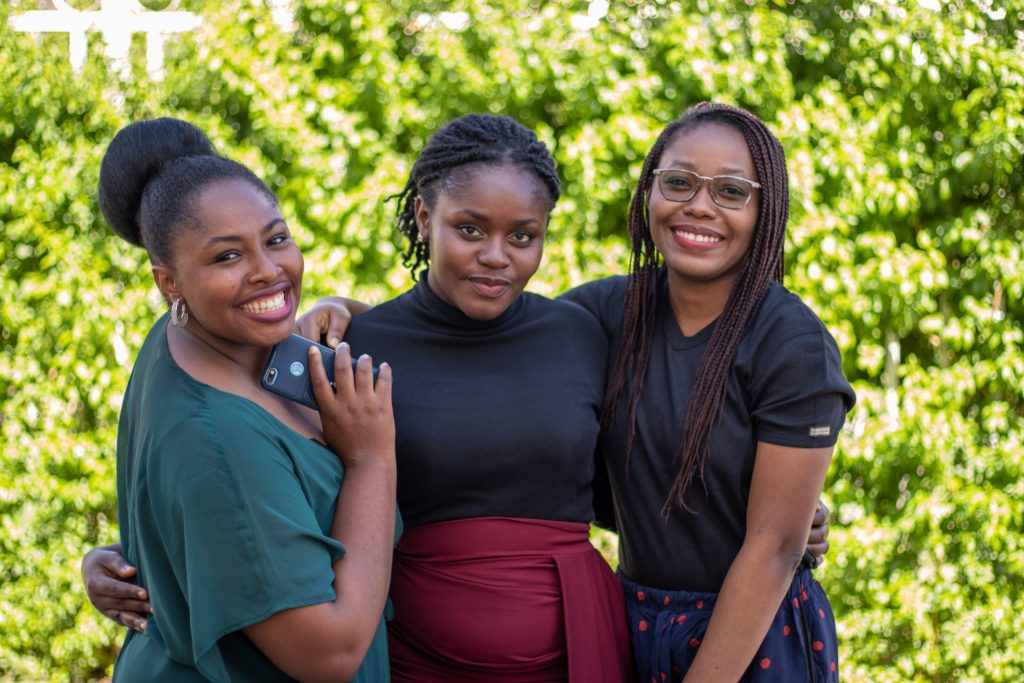
If we had good leaders who were willing, our lives could be better improved. Take the first president we had post-military rule, which was President Obasanjo. He hired some of the best brains to handle the economy of the nation. In that period, our national debt was forgiven, and we were able to raise the highest foreign reserves during his tenure. He ensured that education for girls was provided, and he started affirmative action for women in representation in leadership. Because of that, more women were willing to come out and contest for political gains.
And it wasn’t that there were no problems with his leadership because there were some human rights abuses. However, he did some things that were so good for the nation that we all benefited from. As a result of the things that he did, agriculture and our exports increased. There were technical schools that were built and schools that were revived. So many things across the political and economic landscape became better because we had someone who cared about the nation.
And then when we had people who stopped caring about the nation, we saw all of that, all of the goodwill we had just go to the dust. And right now in Nigeria, our dollar rate is going at over 1600 naira. It has never happened in the history of Nigeria that things have been this bad, and it is all because we have leaders who do not care for the nation.
If we had better leaders, our country would be better. If we had better governance, our country would be better. If we had better systems and structures, then our system would be better. If I want to say, oh, we should improve education so that everyone has quality education, if teachers are not paid because someone has taken their money, how are we going to get a good education?
For me, it is a leadership problem. If we have good leaders, almost everything will fall into place, and we will be able to maximize our resources, improve our nation, improve our voice as a people, and improve the general well-being of ourselves and our people.
What partnerships or collaborations have been crucial to the success of your nonprofit organization and how do you manage these relationships?
While we were still trying to put up our structure, we didn’t know what we were doing in terms of development. We knew we could tell stories, but in terms of reaching people, we didn’t understand it. One of our first partnerships. was with Stand With a Girl Initiative which said, ‘Ramatu, we have seen what work you do. Can you come and train us on gender equality?’
That was the first break for us. Since then, we have partnered with them on many projects. They have introduced us to other partners, such as the Strong Enough Girl Empowerment Initiative.
We were also introduced to The Sunshine Series, which is an organization that promotes mental health in Nigeria. We produced a radio drama for them, and since then, we have partnered with them to tell the story of mental health in Nigeria, we have continued to do that, more recently, when we did our film Flow, which is the film on period poverty and shame. We partnered with Women in Nigeria. It Is a foundation that helps women in Nigeria.
And for the first time, thanks to Atinuke Adeosun, our business development officer, we got a partnership with an organization in South Africa, Wild Hearts Foundation. And it was surprising to me because I was like, wow, we have gone global.
So, we have had partnerships that have helped us to tell stories better, especially on our mobile cinema and our capacity-building projects. And we are proud to be partnered with all these organizations. We are also seeking further partnerships for the future.
We were thankful when Joy introduced us to you, and we were so happy because when we won the grant, the micro-grant for our project, we didn’t think we’d be talking to you today. And you know, we have the opportunity to have our story told on a different platform, a global platform that many people can access.
So, we are constantly seeking opportunities, seeking funding opportunities as we work. But we are proud of the partners that we are working with today and are continually talking to new people and new organizations to increase our reach. I genuinely believe that we do not need to reinvent the wheel. If someone is doing something, partner with them and let them do it. And when we partner and do things together, we will be able to reach even more people than we can ever imagine.
How do you address the needs, rights, and opportunities of boys and girls equally?
Okay, so I am a big proponent that gender equality is not just a women’s issue: gender equality is a men’s, women’s, gender non-conforming issue. So that is one thing we promote across our platforms. We have writers like Adetayo Adetokun, who can talk about issues concerning gender non-conforming behaviors or presentations. He talks about that well. We cannot talk about gender equality unless we are willing to see that people need to present as they are, not as society attempts to conform us to.
With Flow, our film was about period poverty, one of the central characters was a man. When we screened it, a lot of people said, ‘Oh, they didn’t realize that this was what women needed to do’. So, it was an education for them as men. We give balance to our initiatives, except those that are very specific for women, which are like giving pads to our communities. It goes back to my story with Mrs. Williams, that we are human first, and so if we are willing to treat the next person as a human being first before we think of their sex, race, religion, tribe or what have you, then we will have better societies for ourselves.
What do we do with our stories and our products? We believe in gender equality with the realization that it is not about women’s rights but about everybody’s rights, and that is how we tell our stories.
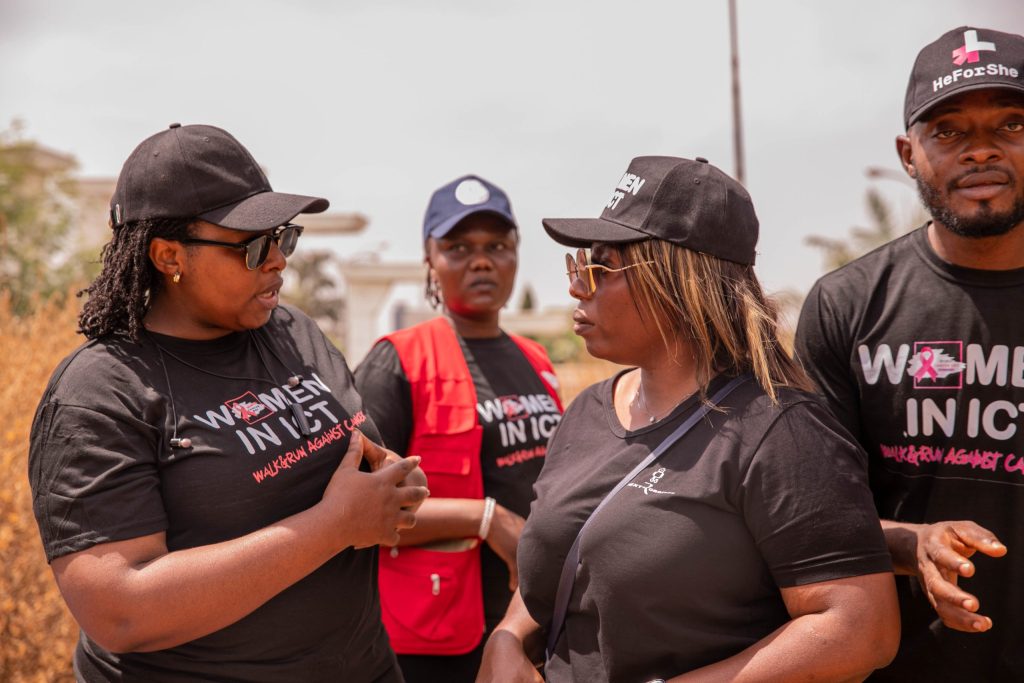
Looking ahead, what are your plans or aspirations for the future of your initiative?
I was waiting for this question. I love the structure we have built now, so we have everything in place for any grant opportunity that comes our way to reach people, and that for me is something I am so proud of. We took our time. We took nearly two years to build our structure, build our processes, build the way we will do things, just so that by the time the opportunities come, and they will come, we can really, really reach the communities that we want to get.
Our future goal is for our mobile cinema project to be screened in every state in Nigeria, every country in Africa, and every country that has people of African descent. It is my lifetime goal to do that, and I have a couple more years to do that. So we also want to see that our hoops and baskets project, which helps girls who like sports to access education and funding, is implemented across Africa, across the countries that have people of African descent. We also want a situation whereby every life that comes in touch with Shades of Us understands that we need to prioritize ourselves, our families, our communities, our nations, and our continent, so much so that they are willing to do the work needed to bring us to the people who we are meant to be. I want everyone who comes in touch with us to say, you know what, I am willing to build my wall. I have said this, as cliched as it is, that one of the biggest things for me is a story, a biblical tale called Nehemiah Wall. It is a story of Nehemiah going to his king saying, ‘Allow us to build our own space.’
When the king agreed, he told everybody to build what was in front of them. A point will come when we all come together and link up these things we are building. But if you do what is in front of you, you will be able to contribute to its overall success. That story has shaped a lot of the work that I do. I teach people that if we all contribute our bit, we will have better communities.
So, I envision a world where everyone who meets Shades of Us decides to build their own wall so that we can all improve our lives, our nations, and our continent together.


